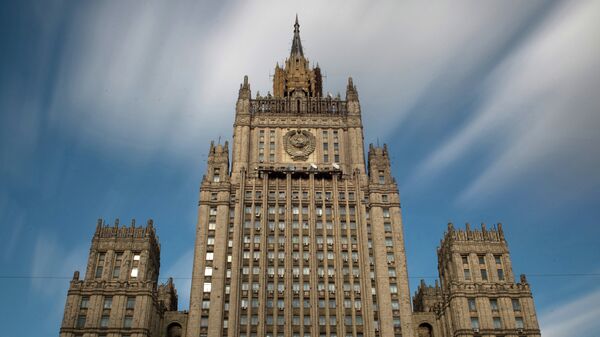MOSCOW, July 17 (RIA Novosti) – Moscow is open to an equal and “de-ideoligized” dialogue with the European Union and hopes Europe will find its own voice in international affairs, the Russian Foreign Ministry said in a statement on its website Thursday.
“Russia has emphasized a number of times that the use of economic instruments as a political weapon is not our choice. Similar unilateral steps are extreme to the detriment of not only Russia, but of the EU member states themselves, many of which are going through serious economic difficulties. However, we are still open to an equal and 'de-ideoligized’ dialogue with European Union countries and hope that the European Union finds its own voice in international affairs that answers to the interests of all the governments of our continent,” the statement reads.
On Wednesday, US authorities imposed new sanctions against a number of Russian companies and banks, denying or restricting them access to US financial markets. US-based companies and individuals have also been prohibited from granting loans to Russia’s Vneshekonombank and Gazprombank for more than 90 days.
During the EU summit on Wednesday, European leaders agreed to prepare a new list of sanctions against Russia including more individuals and entities by the end of July.
On Thursday, First Deputy Chairman of Russia’s Federation Council Economic Policy Committee Yury Shamkov said Europe may have to pay “an unbearable price” should it choose to expand the sanctions’ list.
The US has considerably smaller trading volumes with Russia than Europe, which allows US President Barack Obama’s administration to lobby for sanctions against key sectors of the Russian economy, while some EU member states that have close trading ties with Russia oppose the measures.
Moscow has repeatedly condemned the use of sanctions, warning of the boomerang effect such limitations can have, and urged Western countries to assist in the de-escalation process in Ukraine instead.


